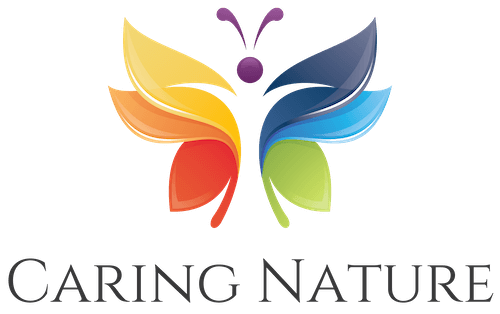Emotional Intelligence: Definition, Key Components, and Its Importance
At school or during entrance exams, you often encounter an intellectual intelligence test or IQ test that measures thinking ability. But have you ever heard of emotional intelligence or EQ?
Emotional intelligence plays an important role in shaping how you carry yourself in every situation. The ability to manage your own emotions affects your social relationships and decision-making.
Learn more about emotional intelligence through Caring Nature’s explanation below, which covers its definition, components, purpose, and benefits, as well as why emotional intelligence is so important.
What Is Emotional Intelligence?
Emotional intelligence, or Emotional Quotient (EQ), is a person’s ability to understand and manage their own emotions. People with strong emotional intelligence tend to be more empathetic and are better at adapting to various social situations.
Just like IQ, EQ also has its own assessments to measure how well a person understands and manages their emotions in daily life. These tests can include self-assessment questionnaires such as the Emotional Quotient Inventory and the Schutte Self-Report Emotional Intelligence Test (SSEIT), as well as ability-based assessments like the Mayer-Salovey-Caruso Emotional Intelligence Test.
Read also: Stress Management: Definition, Purpose, and Benefits for Mental Health
The Five Key Components of Emotional Intelligence
In his book Working with Emotional Intelligence (1995), Daniel Goleman divides emotional intelligence into several key aspects:
1. Self-Awareness
The self-awareness component measures the ability to recognize and understand one’s own emotions, including their causes and effects on thoughts and behavior. People with strong self-awareness can identify their strengths and weaknesses, which influence how they act.
Example: Recognizing when you feel frustrated before reacting or realizing you need help completing a task.
2. Self-Regulation
Self-regulation refers to the ability to manage emotions and reactions in a healthy and constructive way. Individuals with strong self-control do not get carried away by emotions easily, can stay calm under pressure, and think clearly before taking action.
Example: Staying calm during conflicts and remaining focused on goals despite distractions.
3. Motivation
In emotional intelligence, motivation is the internal drive to achieve goals—not merely for external rewards such as money or recognition. Highly motivated individuals tend to maintain a positive attitude when facing challenges.
Example: Having personal life goals and staying optimistic even when tasks feel overwhelming.
4. Empathy
Empathy is the ability to understand and feel what others are experiencing. Through empathy, a person can respond appropriately to the needs and emotions of others.
Example: Noticing when a coworker is struggling and offering timely and meaningful help or support.
5. Social Skills
Social skills encompass the ability to communicate effectively, collaborate, and build as well as maintain positive relationships with others. People with strong social skills tend to adapt easily and often demonstrate leadership qualities.
Example: Resolving workplace conflicts and motivating team members.
When someone develops all five aspects of emotional intelligence, they tend to have high emotional maturity, which helps them maintain balance in both personal and professional life.
A Healthier Lifestyle Through a Holistic Approach
The Purpose and Benefits of Emotional Intelligence
Here are the main purposes and benefits of improving emotional intelligence:
1. Becoming a Key Competency for Success
According to research from the Consortium for Research on Emotional Intelligence in Organizations, emotional intelligence (EQ) has been found to be twice as influential as intellectual intelligence (IQ) in determining a person’s success in the workplace.
This is because emotional intelligence directly affects a person’s ability to communicate, adapt, and collaborate with others. Success is not determined solely by technical skills; building meaningful relationships with others is equally important.
2. Maintaining Positive and Meaningful Relationships with Others
Emotional intelligence also helps maintain healthy and meaningful relationships, both personally and professionally. Individuals with strong emotional intelligence can understand their own emotions as well as others’, making it easier to empathize and avoid misunderstandings.
3. Improving Physical and Mental Health
Emotional intelligence not only affects social relationships but also contributes to better physical and mental health. A high level of emotional intelligence helps individuals maintain emotional balance, which positively influences blood pressure, immune function, and sleep quality.
Read also: What is the Employee Wellbeing Program? Learn the Importance of It for Your Company!
Why Is Emotional Intelligence Important?
Emotional intelligence (EQ) plays a crucial role in determining success, both personally and professionally. According to Daniel Goleman, as cited by the Harvard Business Review, all high-performing leaders possess strong emotional intelligence.
This is because emotional intelligence enables individuals to recognize and manage their own emotions, understand others’ feelings, and build positive relationships. In the workplace, these abilities have a major impact on effective communication, conflict resolution, teamwork, and empathetic leadership.
In other words, emotional intelligence is not only about “feeling,” but about managing emotions wisely to make sound decisions and create a productive, harmonious work environment.
Emotional Management Training with Caring Nature
Life can feel much heavier when emotions are hard to control. Suppressed negative emotions can lead to recurring anxiety and anger, which interfere with decision-making and damage relationships.
Caring Nature offers emotional management training designed to help you release suppressed emotions. Our experts can guide you toward rediscovering peace and happiness, calming your mind, and gaining control over your thoughts and body from negative emotions.

